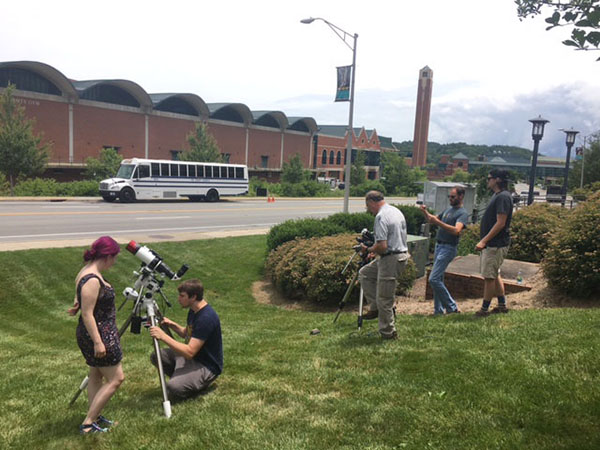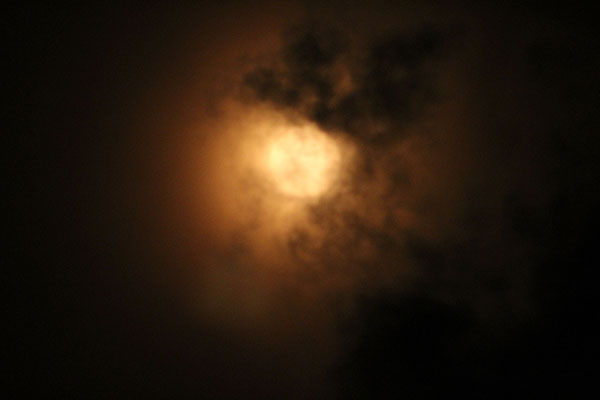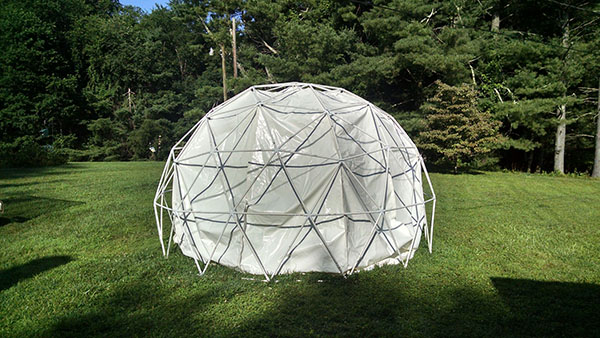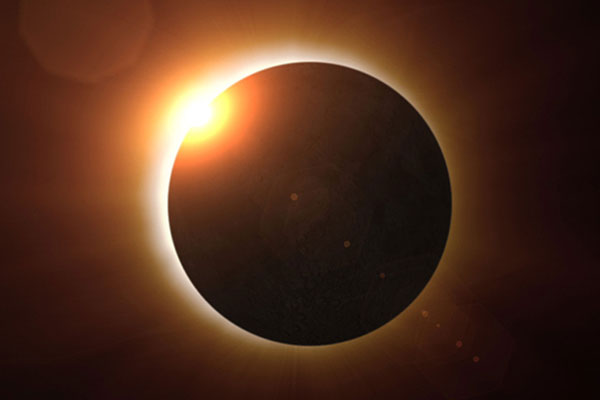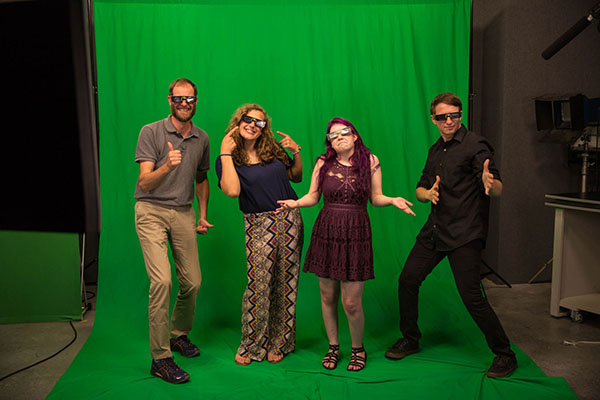
From left, Dr. David Sitar and Ellie Prim on set with students from Southwestern Community College, as they make solar eclipse videos found at http://cas.appstate.edu/eclipse
BOONE, N.C.—On Aug. 21, a solar eclipse will occur over the United States. Appalachian State University’s College of Arts and Sciences and Department of Physics and Astronomy have been working for months to share the experience with the campus and community.
A total solar eclipse happens when the Moon completely covers the Sun in the sky, blocking its light and allowing the Sun’s outer atmosphere to become viewable. Stars and planets can be visible on a clear day, appearing just like the night sky. Outside the path of a total eclipse, sky watchers around the continental United States will still see a partial eclipse, in which the Moon appears to cover a portion of the Sun, but the sky will not darken completely, if at all.
The path of the total eclipse will be 70 miles wide and will stretch from Oregon to South Carolina. The timing of the total solar eclipse and its duration will depend on where the viewer is located in the path of totality. At most, the Moon will completely cover the disk of the Sun for two minutes and 40 seconds, but the entire event will take up to four hours. The last eclipse of this kind over the United States was 99 years ago.
In Boone, a partial eclipse will be seen. The ingress, the first sight of the Moon on the solar disk, will appear at 1:10 p.m. The greatest coverage, which will occur at around 96 percent coverage, will happen at 2:36 p.m. and the egress, when the Moon completely leaves the solar disk, will happen at 4:01 p.m.
One of the closest locations of totality from Boone is Sylva, North Carolina. The Department of Physics and Astronomy has partnered with Southwestern Community College in Sylva on several projects including setting up a live feed to share the experience of totality in Boone.
If you have the means or the plans to travel, be aware that the expectation of additional traffic on the roads in North Carolina on this day is between 1.8 and 7.4 million people. Plan ahead and expect delays.
If you are in Boone, here are opportunities on the Appalachian campus to experience the partial eclipse safely and close to home:
- Between 1 and 4 p.m., the live feed from Sylva will be viewable from Grandfather Mountain Ballroom in the Plemmons Student Union, as well as on the College of Arts and Sciences website at http://cas.appstate.edu/eclipse. Also in this room, faculty member Dr. Courtney McGahee will set up a portable planetarium. A planetarium is a theatre-style dome built to present a projection of stars, planets and other celestial objects that can be made to appear and move realistically to simulate the night sky. These opportunities will be available rain or shine.
- On Sanford Mall, faculty from physics and astronomy – including Dr. Michael Briley, Dr. Brooke Hester and Ben Madison – along with their students will set up telescopes for safe solar viewing and to answer questions about the day’s event. To safely view the eclipse, the College of Arts and Sciences will be handing out solar viewing glasses to all members of the campus or community who participate.
Anyone planning to view the eclipse should wear solar viewing glasses. This protective eyewear makes it possible for viewers to look directly at the Sun before and after the totality. Regular sunglasses cannot be used. Looking directly at the Sun, even when it is partially covered by the Moon can cause serious eye damage. If you are outside the path of the total solar eclipse, you should not look at the sun without your solar viewing glasses.
For more information about how to experience the solar eclipse, safety guidelines and additional local events before Aug. 21, visit our website http://cas.appstate.edu/eclipse.
Parking is available for community participants in the River Street Parking Deck and metered parking is available on King Street in downtown Boone.
About the Department of Physics and Astronomy
The Department of Physics and Astronomy’s curriculum has an applied nature that includes a core of fundamental physics courses and laboratory experiences. It prepares graduates for a variety of scientific, teaching or engineering professions, as well as future educational endeavors.
About the College of Arts and Sciences
The College of Arts and Sciences is home to 16 academic departments, two stand-alone academic programs, two centers and one residential college. These units span the humanities, social sciences, and the mathematical and natural sciences. The College of Arts and Sciences aims to develop a distinctive identity built upon our university’s strengths, traditions and unique location. Our values lie not only in service to the university and local community, but through inspiring, training, educating and sustaining the development of our students as global citizens. There are approximately 5,850 student majors in the college. As the college is also largely responsible for implementing Appalachian’s general education curriculum, it is heavily involved in the education of all students at the university, including those pursuing majors in other colleges. Learn more at http://cas.appstate.edu
About Appalachian State University
As a premier public institution, Appalachian State University prepares students to lead purposeful lives. App State is one of 17 campuses in the University of North Carolina System, with a national reputation for innovative teaching and opening access to a high-quality, cost-effective education. The university enrolls more than 21,000 students, has a low student-to-faculty ratio and offers more than 150 undergraduate and 80 graduate majors at its Boone and Hickory campuses and through App State Online. Learn more at https://www.appstate.edu.
What do you think?
Share your feedback on this story.
